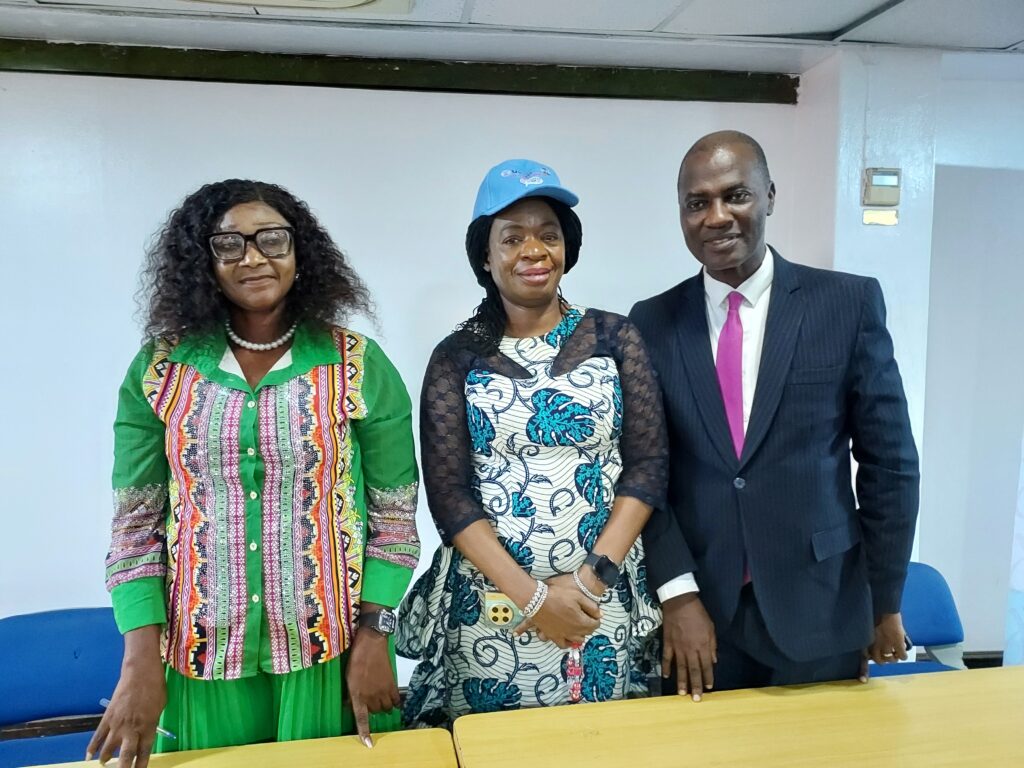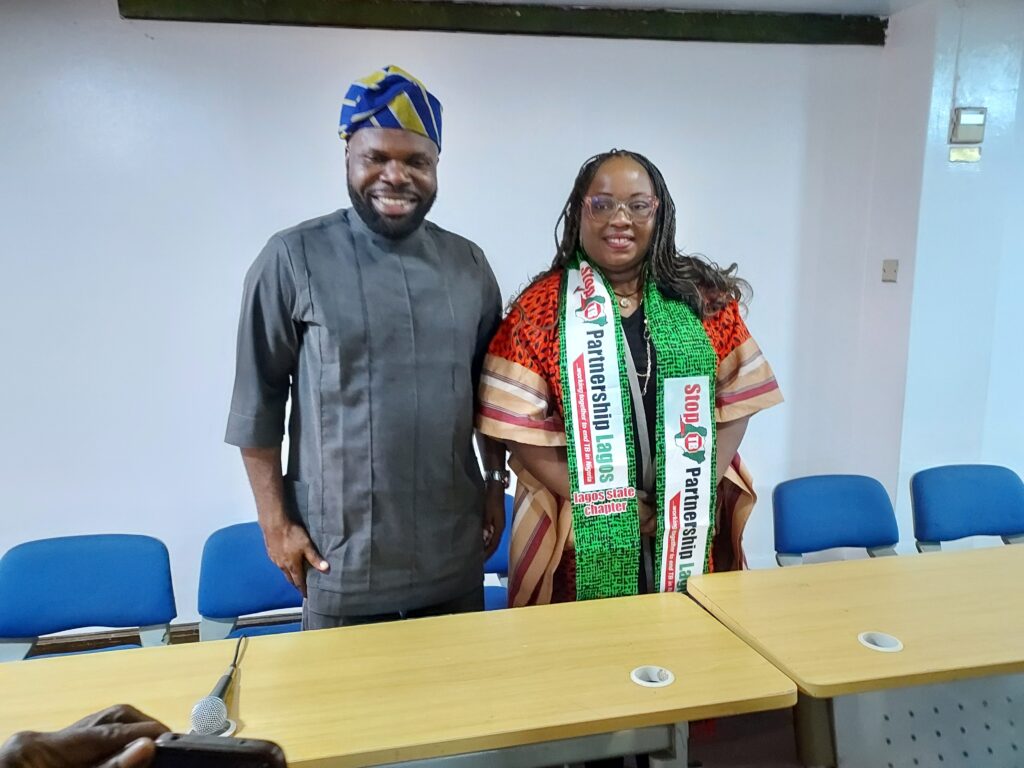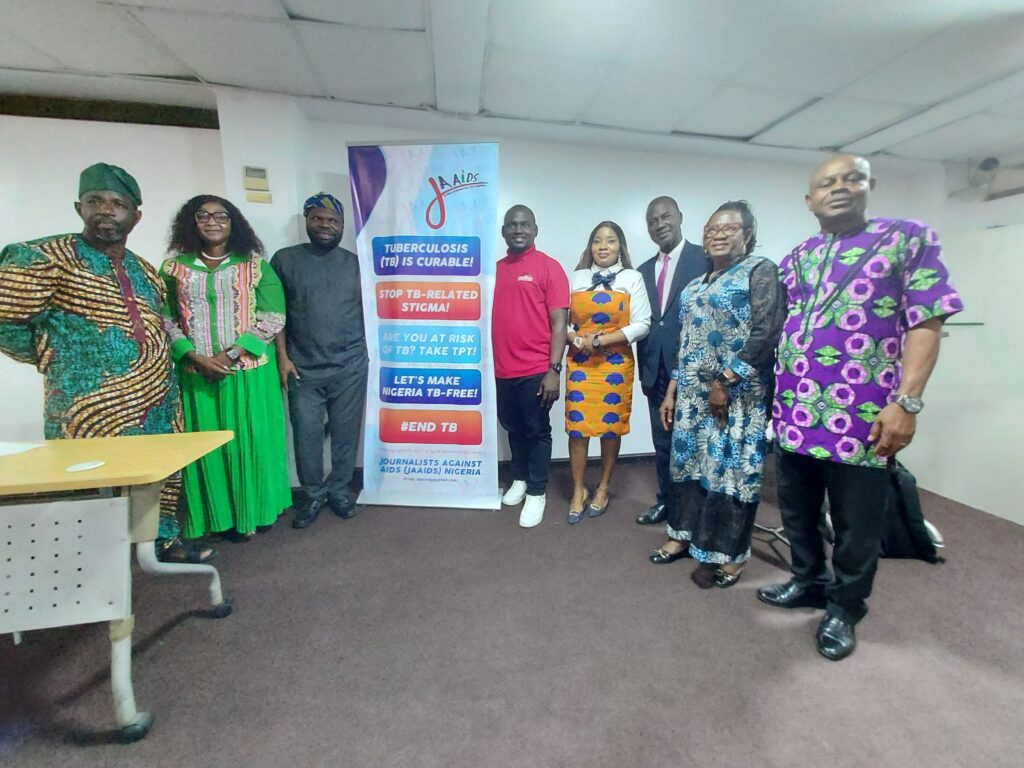By Bunmi Yekini

Every year, thousands of people in Lagos contract tuberculosis (TB), yet many cases go undiagnosed. While TB is curable, preventing its spread remains a critical challenge. Health experts are now focusing on Tuberculosis Preventive Treatment (TPT)—a strategy that stops TB before it can take hold, especially among those most at risk.
At a recent media roundtable organized by Journalists Against AIDS (JAAIDS) Nigeria to mark World TB Day 2025, stakeholders, including medical professionals, TB survivors, and government officials, highlighted the urgent need to scale up TPT awareness and access in Lagos.
A Race Against Time: Why Prevention Matters
TB spreads through the air and can remain dormant in a person’s body for years without symptoms. But for people with weakened immune systems—such as those living with HIV or in close contact with infected individuals—the risk of developing active TB is significantly higher.
That’s where short-course TPT (1HP) comes in. This one-month treatment regimen dramatically reduces the risk of TB infection. Unlike the traditional six-month preventive treatment, 1HP is shorter, safer, and easier to complete.
Dr. Olusola Sokoya, Deputy Director and State TB & Leprosy Control Programme Manager, explained the stakes:
“In Lagos last year, we detected 19,052 TB cases, but we expected to find at least 50,000. That means 31,000 cases went undiagnosed. This year, we face an estimated 80,000 undetected cases. To close this gap, prevention must be a priority.”
With only 38% of expected cases being detected, experts warn that Lagos needs to ramp up preventive efforts alongside treatment.
Scaling Up TPT in Lagos

JAAIDS Nigeria is implementing the IMPAACT4TB Project Phase 2, supported by the AURUM Institute and UNITAID. The project promotes the Family and Household Contact Approach, ensuring that close contacts of TB patients—such as family members and caregivers—can access free short-course TPT (1HP) at designated health centers.
Dr. Sokoya emphasized the need for increased awareness:
“Many people don’t know that TB can be prevented with medication. TPT is not just for those who are sick—it’s for people who are at risk but not yet showing symptoms. We need more people to step forward and take advantage of this life-saving treatment.”
To drive uptake, the project has been extended to March 2025 and will include:
- Community outreaches in Ajeromi, Ifako-Ijaiye, and Ikorodu.
- IEC (Information, Education, and Communication) materials to educate the public.
- Media campaigns to dispel myths and encourage preventive treatment.
Breaking Barriers: Tackling Stigma and Misinformation
Despite being preventable and curable, TB remains highly stigmatized. Many people avoid seeking care due to fear of discrimination.
Dr. Ime Okon, Medical Director and Secretary of the Lagos State Stop TB Partnership, compared the response to TB with other public health crises:
“When COVID-19 hit, billions of dollars were mobilized in months. TB has been killing people for centuries, yet it’s ignored because it’s seen as a ‘poor man’s disease.’ We need to change that narrative.”
To address stigma, TB survivors are stepping forward to educate communities and support patients.
TB Survivors Leading the Charge
Oluseyi Kadiri, a TB survivor and Lagos Coordinator of TB People, now helps others complete their treatment and access preventive care.
“I survived TB, but many don’t, simply because they don’t know about treatment or they stop taking their medication. We track defaulters, provide counseling, and fight stigma so that more people can get treated early.”
Kadiri also highlighted the One Impact mobile app, which allows people to:
- Check their TB risk.
- Find the nearest TB treatment center.
- Report cases of stigma at health facilities.
A Call for Action: Prevention is Key

Experts agree that early intervention through TPT is crucial in reducing Lagos’ TB burden. The State Steering Committee on TB, chaired by the Office of the First Lady, is working with local governments to integrate TPT awareness into community programs and expand access through primary healthcare centers and mobile TB vans.
Lekan Otufodunrin, Executive Director of Media Career Services, stressed the role of journalists in driving awareness:
“The media must amplify the importance of TPT. It’s not enough to report on TB when there’s an event—we need to keep the conversation going, so people know where and how to get preventive treatment.”
Yes, We Can End TB—But Prevention Must Come First
With increased investment, stronger advocacy, and wider access to TPT, Lagos has an opportunity to stop TB before it starts. But achieving this requires collective action from the government, health workers, journalists, and communities.
Dr. Sokoya summed it up:
“Treatment alone won’t end TB—we must prevent new infections. The time to act is now.”
